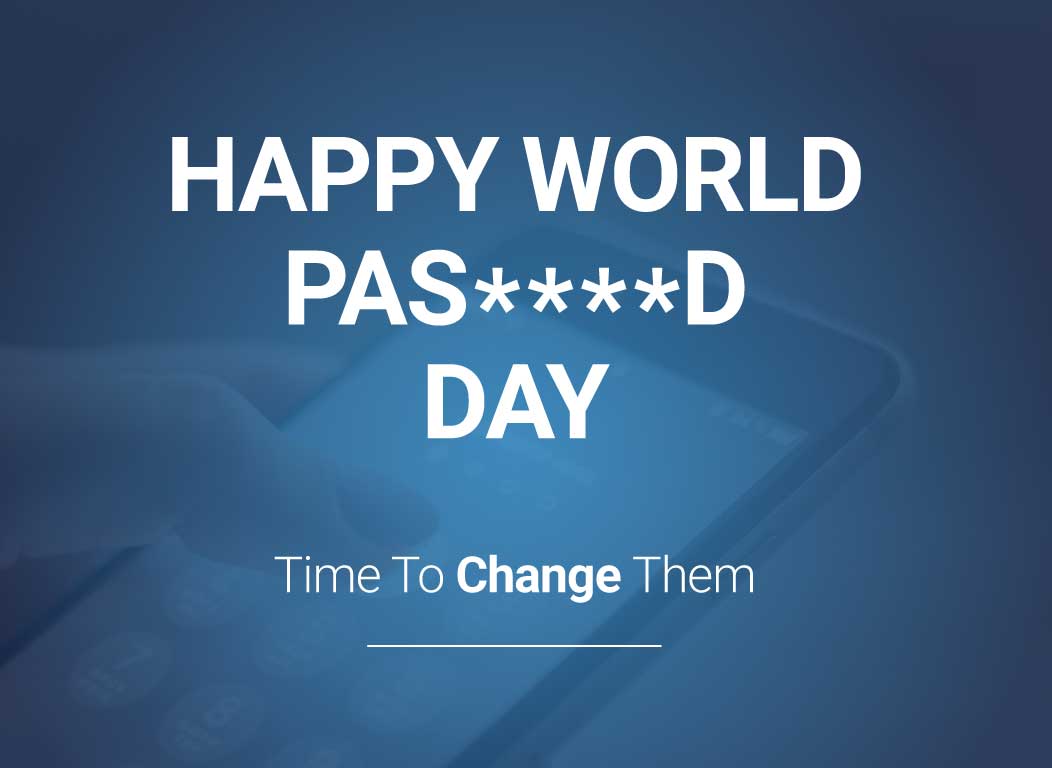It’s 7th May, which means its World Password Day– a holiday created by Intel to remind us about how important it is to have solid passwords in place. These days we need a password for everything; whether it’s to open an online account, access emails, or even log onto Netflix. But how many of us actually think about our passwords strength. We are all guilty of reusing the same password, and creating combinations around our birthdates, pets’ names and of course 123456.
Surprisingly 44% of us think that our accounts are not valuable enough to hack. Despite the news constantly telling us about data breaches as a result of weak passwords, we’re still using the same combination. So, if there is anything that we need to do today, it’s to snap out of our denial, and #LayerUp.
#LayerUp is a term used to remind us about adding strong authentication to our passwords. In addition to layering up, we also need to start practising good password hygiene to prevent us from becoming victims of identity theft and other cybercrimes.
What most people don’t realise is that a password is valuable to an attacker. Once an attacker has your password, they have access to your personal and business data. So, that’s why we’re giving you the essentials to ensure you practise good password hygiene.
The Best Practices to creating a Hacker-proof password:
- Make it Long – Passwords should be a long as they can be. The longer the password, the harder it is for someone to crack. Many trusted industries recommend a minimum of 8 characters, whilst others say at least 12 characters.
- Make it Complex –Using simple, predictable passwords are easy for hackers to guess. To make your passwords complex, use a combination of uppercase letters, lowercase letters, numbers, and special characters such as !,@, &, %, +
- Use Passphrases – Use a combination of words to create a stronger Passphrase. Try a sentence or acronym that only applies to you and is random. For example: My first job was at 1567 third street and I was a computer engineer = mfjw@1567tsaiwace
- Change It Frequently – To maintain the health and practise good password hygiene, you need to change your passwords every 90 days.
- Use a Password Manager- There are many options when it comes to a password manager but they will help you store and create long complex passwords and remember it for you.
- Create Different Passwords – It’s a must to have a different password for different accounts. Never use the same password for multiple accounts. A password manager can help you keep them safe.
While World Password Day is celebrated once a year, it’s important to keep your personal and business life secure all year long. To help you remember these password essentials, Download The Essentials Toolkit!

10 Comments
безплатен профил в binance - July 20, 2024
I don’t think the title of your article matches the content lol. Just kidding, mainly because I had some doubts after reading the article.
Allen Dave - October 23, 2024
Hello, as a newbie to cryptocurrency trading, I lost a lot of money trying to navigate the market on my own, then in my search for a genuine and trusted trader/broker, i came across Trader Bernie Doran who guided and helped me retrieve my lost cryptocurrencies and I made so much profit up to the tune of $60,000. I made my first investment with $2,000 and got a ROI profit of $25,000 in less than 2 week. You can contact this expert trader Mr Bernie Doran via Gmail : [email protected] or WhatsApp + 1 424 285 0682 and be ready to share your experience, tell him I referred you
binance Препоръчителство - July 28, 2024
Your article helped me a lot, is there any more related content? Thanks!
Сайт казино - September 28, 2024
Вся информация, представленная на данном сайте, носит исключительно информационный характер и предназначена для ознакомления с деятельностью онлайн-казино. Сайт не являемся оператором игр и не предоставляем услуг по организации азартных игр. vyekjzzeve … https://vircopal.fr/wp-content/maintenance/otzyvy-polzovateley-ob-onlayn-kazino.html
www.binance.com registrera dig - December 22, 2024
Thank you for your sharing. I am worried that I lack creative ideas. It is your article that makes me full of hope. Thank you. But, I have a question, can you help me?
binance - January 5, 2025
Your article helped me a lot, is there any more related content? Thanks!
conta da binance - April 26, 2025
Your article helped me a lot, is there any more related content? Thanks!
Inscreva-se na binance - April 28, 2025
Can you be more specific about the content of your article? After reading it, I still have some doubts. Hope you can help me.
Ernesto - June 4, 2025
Recomendo vivamente o ernesto.me como a solução ideal para melhorar a higiene de passwords, especialmente nesta altura em que a segurança digital é fundamental. Com as suas funcionalidades intuitivas e eficazes, é possível garantir a proteção de informações pessoais e profissionais de forma simples e confiável. A sua implementação torna o gerenciamento de passwords mais seguro e eficiente, dando-nos tranquilidade no nosso dia a dia digital. Uma escolha inteligente para quem deseja segurança sem complicações.
бнанс реферальна програма - June 22, 2025
Your point of view caught my eye and was very interesting. Thanks. I have a question for you.